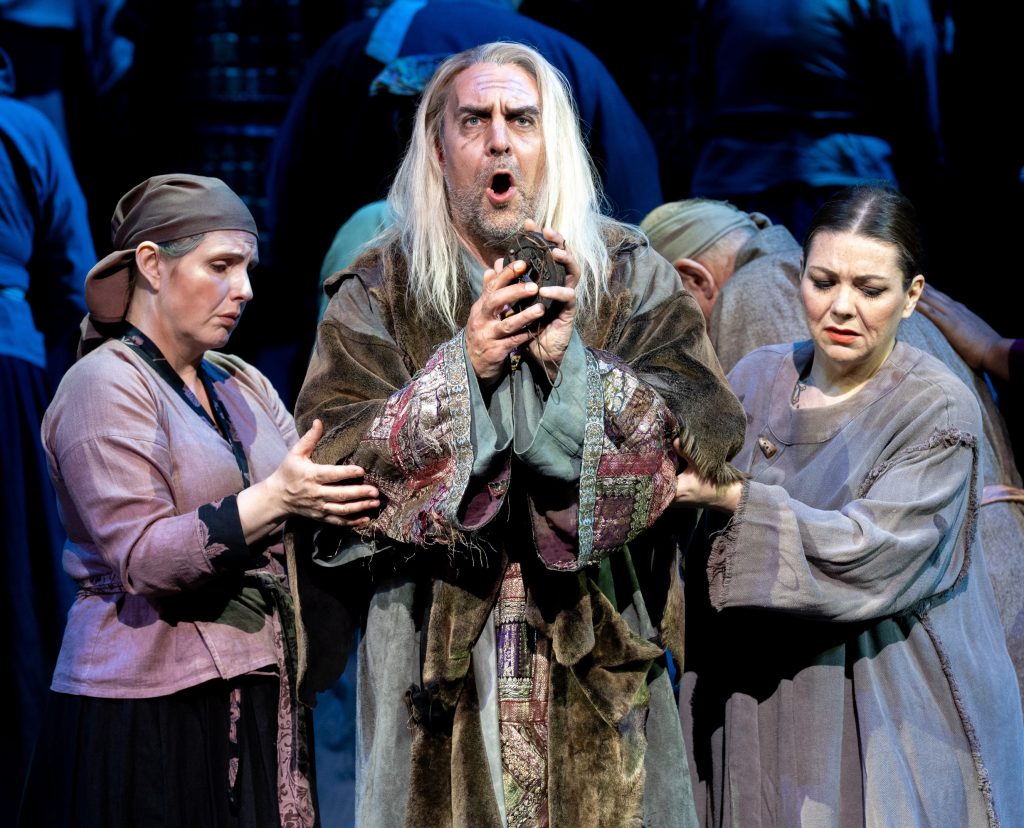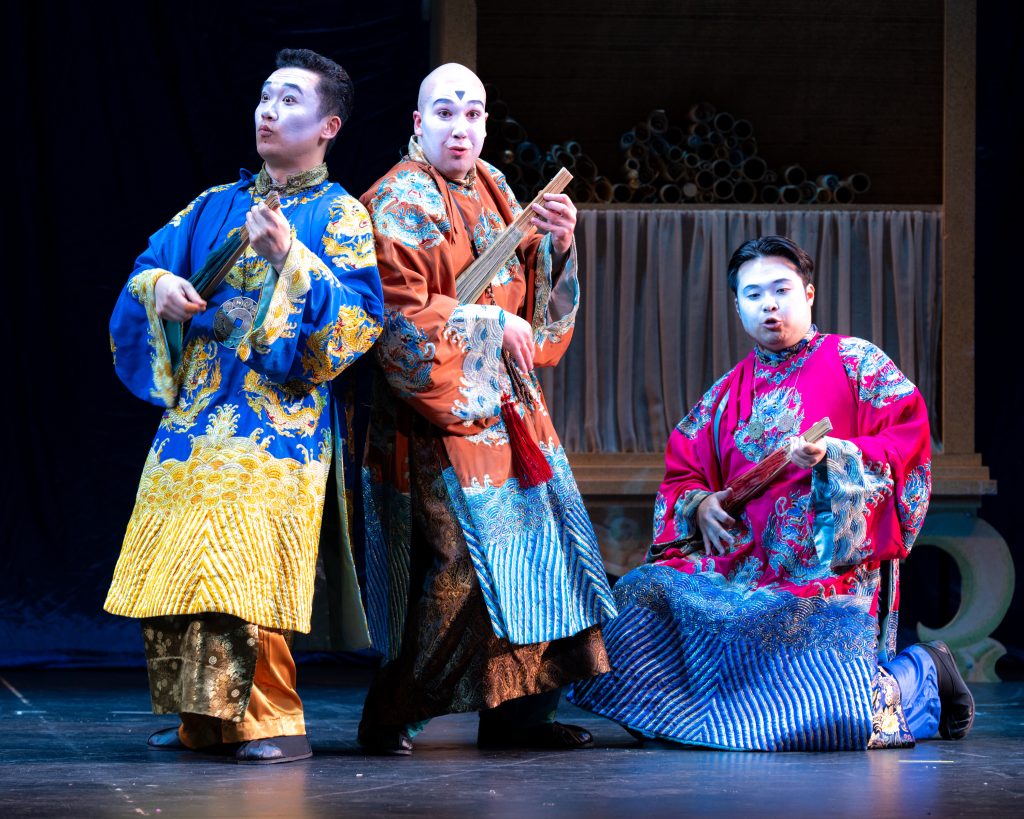The Lyric Opera’s lovingly built production of Turandot from 2011 has happy memories for Kansas City audiences. It opened the company’s very first season in the $400 million Kauffman Center for the Performing Arts, and at the time was possibly the most lavish production in the company’s history.

Visual impact is of great importance to Puccini’s potboiler, and it was satisfying to see this lovely production again this May 2nd through the 4th — its first outing here since the premiere 14 years ago.
With large, ingeniously intricate set designs by R. Keith Brumley, elegantly detailed costumes by Mary Traylor, and fascinating lighting designs by James D. Sale, it delivers now as it did oh so long ago.
Carlo Montanaro, a major figure in Italian opera today, was the conductor this time, and nearly all of the soloists were making their Lyric debuts. Wendy Bryn Harmer was a formidable Turandot, plumbing the character with gravitas and no small measure of subtlety.
She showed stentorian command at the top of her voice, and excelled in passages at piano and pianissimo,where she was able to explore a full palette of thrilling colors and detailed inflection.
Calàf was double-cast, and on May 3rd we heard Angelos Samartzis, whose assured tenor rang out with quixotic hopefulness throughout. The certainty with which this Calàf coaxed love from Turandot’s reluctant heart never wavered. “Nessun dorma” was direct, sincere, warmly touching without being excessively American Idol-ish.
Particularly impressive was Brittany Olivia Logan as the faithful servant Liù, whose demise is one of the more jarring aspects of this deeply flawed libretto by Giuseppe Adami and Renato Simoni — seen here with Franco Alfani’s 1926 completion of the opera that Puccini was unable to finish before his death. Her soprano was honest and resonant and exceptionally refined. David Soar sang the role of Timur, Calàf’s father, with integrity and heartfelt tristesse, and Genaro Méndez was a commanding Emperor Altoum.
Turandot trades liberally on pentatonic scales and other clichés of “Asian” music — a characteristic of the era. The trio of courtiers (Ping, Pang, and Pong, sung by Alex Smith, Zhengyi Bai, and Daniel L. Lee) largely avoided caricature and lent a whimsical touch to Act II. Seungchan Hong was a solid Mandarin, and Kevin Thomas Smith as the Prince of Persia sang as much as he could before he lost his head.
Director Garnett Bruce balanced pathos with common sense, particularly in intimate moments. Keith Brumley’s massive walls and panels were given to impressive rearrangements.
The stage-left platform and “ramp” of Act I appeared ideal for a ritual beheading and blood-letting; alas, we were not presented with this, though it was oddly refreshing to see the head of the Prince of Persia carried off the stage after he had failed Turandot’s notorious quiz.
The final love-duet in Act III managed to bring a bit of genuine heart to the proceedings, at last, as Turandot finally opened her soul to love and Calàf was there, ready and willing to accept her abrupt shift in attitude. The large, rich-sounding chorus (prepared by Piotr Wiśniewski) also found its footing here.
— Paul Horsley


